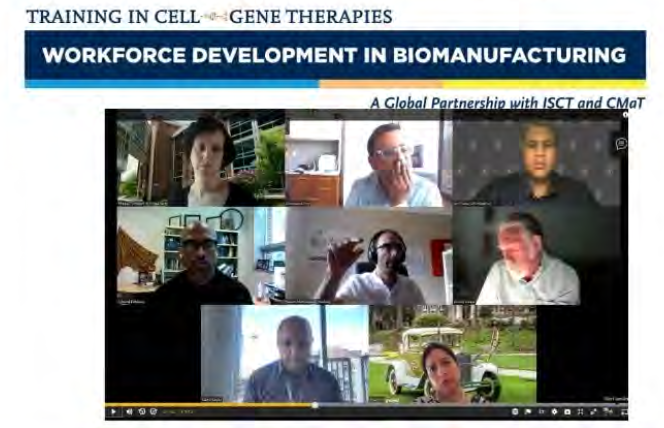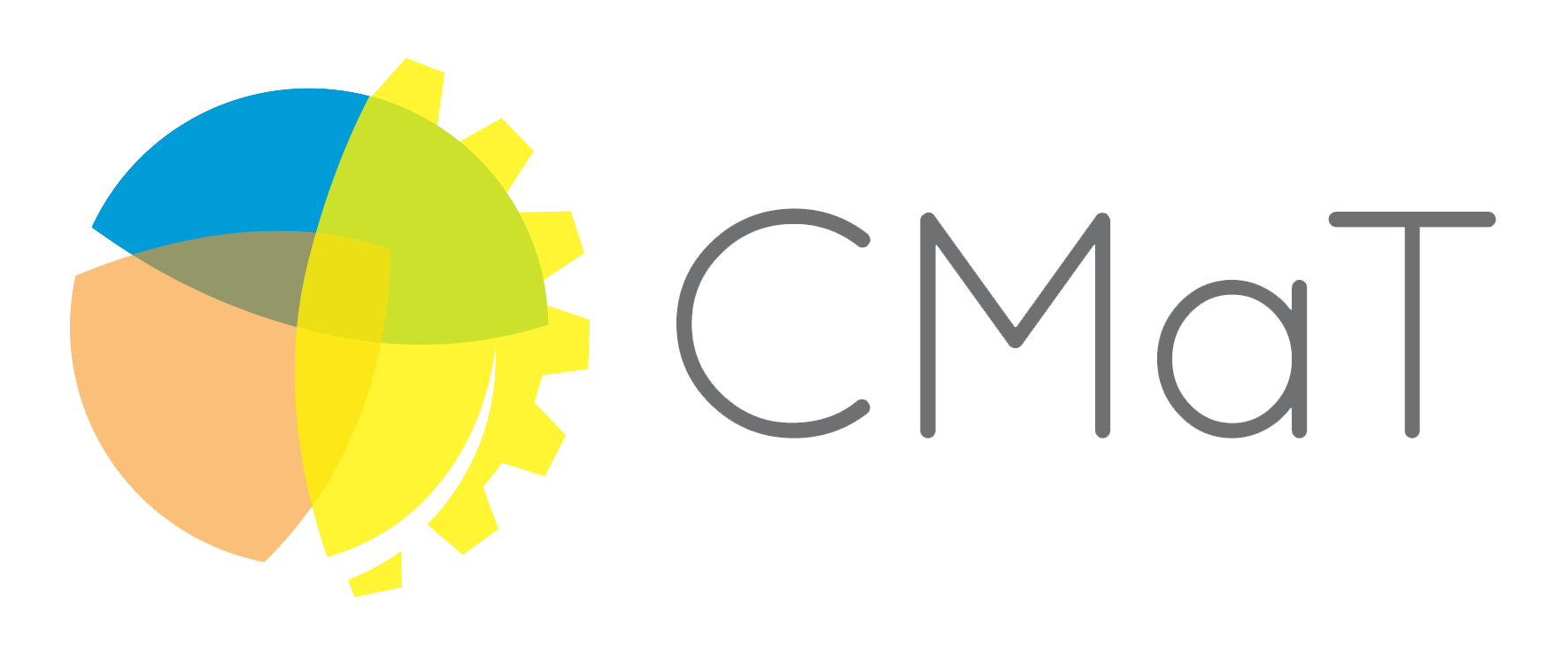CMaT ERC partners with ISCT on Workforce Development Training Program
Outcome/Accomplishment
The International Society for Cell and Gene Therapy (ISCT) has partnered with the National Science Foundation (NSF) Engineering Research Center (ERC) for Cell Manufacturing Technologies (CMaT) at the Georgia Institute of Technology for a joint workforce development training program. The Biomanufacturing collaboration between ISCT and CMaT successfully developed and launched a "Cell Manufacturing Professional training program" to train/retrain industry professionals.
Impact/Benefits
The Workforce Development Program in Biomanufacturing is designed especially for entry level personnel, graduate, and advanced undergraduate students interested in developing the fundamental skillset and knowledge unique to Cell and Gene Therapy (CGT) manufacturing. Participants are exposed to lectures on theory and application components, business development, licensing, and regulatory pathways; each module concludes with a live, expert panel discussion and Q&A session. Participants receive a certificate of completion for each module.
Explanation/Background
Field experts from academia, regulatory, clinical, and commercial domains developed the training program. The goal is to upskill key personnel for roles within companies and clinical manufacturing centers across the CGT sector. The program is organized into four primary modules covering: Stem Cell and Immune Cell Engineering and Therapies; Quality Assurance and Regulatory Frameworks; Cell Bioprocessing and Manufacturing; and Cell Product Characterization and Standards.
The inaugural program was held in the Summer of 2022 with 56 participants enrolled. Of those enrolled, more than 50 percent were industry participants. Half the participants were from the US and the other half represented internationally based participants. The second offering of the course, in October 2022, saw increased enrollment. CMaT expects to continue offering the program three times per year. Future course offerings will include more hands-on training opportunities.
Location
Atlanta, GeorgiaStart Year
Advanced Manufacturing
Advanced Manufacturing
Lead Institution
Core Partners
Fact Sheet
Outcome/Accomplishment
The International Society for Cell and Gene Therapy (ISCT) has partnered with the National Science Foundation (NSF) Engineering Research Center (ERC) for Cell Manufacturing Technologies (CMaT) at the Georgia Institute of Technology for a joint workforce development training program. The Biomanufacturing collaboration between ISCT and CMaT successfully developed and launched a "Cell Manufacturing Professional training program" to train/retrain industry professionals.
Location
Atlanta, GeorgiaStart Year
Advanced Manufacturing
Advanced Manufacturing
Lead Institution
Core Partners
Fact Sheet
Impact/benefits
The Workforce Development Program in Biomanufacturing is designed especially for entry level personnel, graduate, and advanced undergraduate students interested in developing the fundamental skillset and knowledge unique to Cell and Gene Therapy (CGT) manufacturing. Participants are exposed to lectures on theory and application components, business development, licensing, and regulatory pathways; each module concludes with a live, expert panel discussion and Q&A session. Participants receive a certificate of completion for each module.
Explanation/Background
Field experts from academia, regulatory, clinical, and commercial domains developed the training program. The goal is to upskill key personnel for roles within companies and clinical manufacturing centers across the CGT sector. The program is organized into four primary modules covering: Stem Cell and Immune Cell Engineering and Therapies; Quality Assurance and Regulatory Frameworks; Cell Bioprocessing and Manufacturing; and Cell Product Characterization and Standards.
The inaugural program was held in the Summer of 2022 with 56 participants enrolled. Of those enrolled, more than 50 percent were industry participants. Half the participants were from the US and the other half represented internationally based participants. The second offering of the course, in October 2022, saw increased enrollment. CMaT expects to continue offering the program three times per year. Future course offerings will include more hands-on training opportunities.

